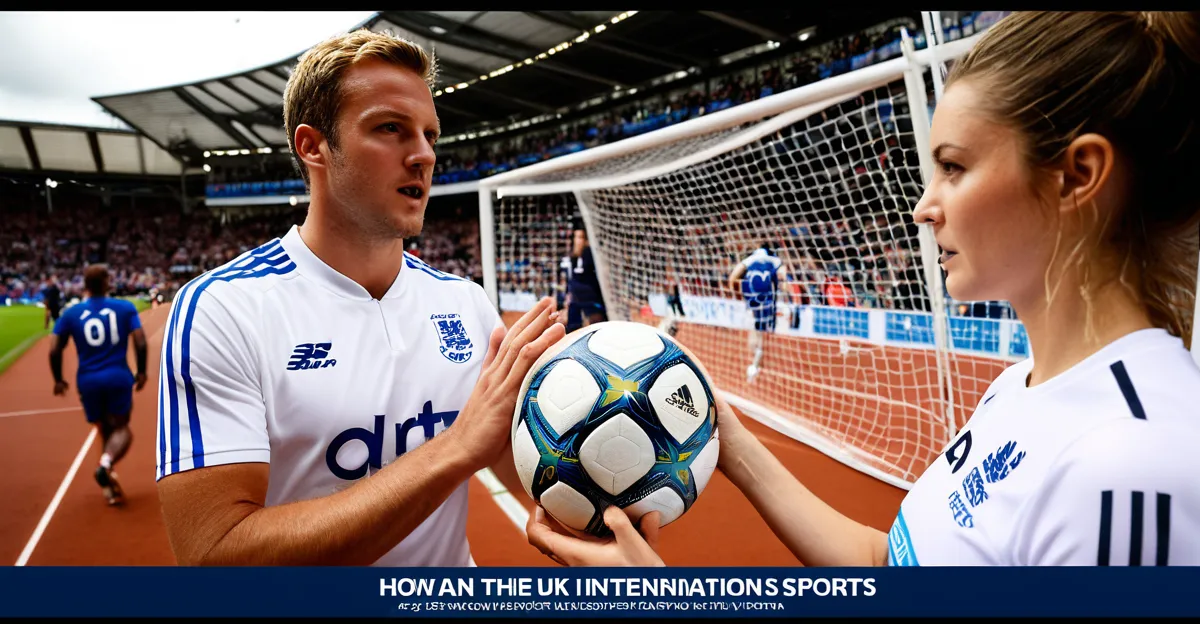Current State of UK Representation in International Sports
UK international sports performance remains a topic of both pride and concern. While the UK boasts impressive achievements in high-profile events like the Olympics and Commonwealth Games, statistics reveal persistent gaps in representation across certain sports disciplines. For instance, team sports such as football and rugby show strong international presence; however, other areas like cycling and athletics face challenges in maintaining consistent global competitiveness.
Data on UK sports representation statistics indicate that although medal counts are commendable, many sports suffer from underrepresentation, especially in emerging fields and minority sports. This underrepresentation often stems from structural barriers and limited access to elite development programs, affecting overall performance trends.
Topic to read : What Innovative Strategies Could Transform UK Sports?
High-profile success stories, such as the UK’s notable cycling champions and swimmers, underscore the potential within the UK sports system. Yet, these successes coexist with ongoing challenges, including uneven resource distribution and regional disparities in athlete development. Addressing these issues is crucial for enhancing the UK’s standing in international sports and ensuring balanced representation in future events.
Key Challenges Facing UK Athletes and Teams
The UK sports representation statistics reveal significant barriers to UK sports success that hamper athletes and teams on international stages. Structural challenges, including inconsistencies in athlete development and selection processes, create uneven opportunities. Many promising athletes face underrepresentation issues due to limited access to elite training facilities or coaching, particularly outside well-funded sports like football and rugby.
Topic to read : Can the UK Sports Industry Overcome Emerging Challenges?
Financial limitations also constrain competitiveness. Disparities in funding allocation across sports mean that some athletes must compete with fewer resources, impacting preparation and performance at global events. This lack of equitable support stifles talent growth, contributing to uneven international competitiveness.
Furthermore, the increasing globalization of sports intensifies challenges. The UK contends with talent migration, where athletes often move abroad seeking better development environments. This attrition further weakens the domestic talent pool. Addressing these multifaceted challenges is essential to enhancing the UK’s position while ensuring balanced participation across all sports disciplines. Robust reforms targeting these specific issues could lead to more inclusive and successful UK international sports performance in the future.
Enhancing Talent Identification and Development Pathways
Developing robust UK talent development systems is vital to overcoming current challenges in international sports. Effective athlete pathways begin at the grassroots level, where early identification can nurture promising talents before typical underrepresentation issues take root. Investment in grassroots sports provides equitable opportunities, ensuring all regions contribute to the talent pool.
To succeed, the UK must modernise scouting and development frameworks. This involves integrating data-driven methods and expanding outreach beyond traditional sports hubs. Many athletes miss opportunities due to geographical and socioeconomic barriers, limiting diversity in representation.
A comprehensive approach includes:
- Enhancing youth programmes with better coaching and facilities
- Creating clear progression routes from amateur to elite levels
- Facilitating access to high-performance environments for all athletes
By prioritising these measures, the UK can systematically identify and support emerging talent. This strategic focus on athlete pathways improves long-term performance and addresses the structural issues causing gaps in UK sports representation statistics. Ultimately, strengthening these pathways will help balance representation and boost the UK’s competitiveness on the international stage.
Reforming Funding and Support Structures
Efficient UK sports funding is crucial to overcoming persistent current challenges in international sports representation. One major issue lies in the uneven investment in sports, where some disciplines benefit from abundant resources, while others struggle under scarce funding. This disparity limits athlete development and broad competition.
Improving public and private investment in sports involves increasing transparent allocations that focus on both popular and underfunded areas. Prioritising funds means enhancing infrastructure, coaching quality, and athlete support systems across all levels. Optimising resource allocation requires data-driven strategies to ensure money genuinely boosts UK international sports performance.
Supporting athletes beyond competition includes comprehensive care programs addressing mental health, education, and post-career planning. These measures help retain talent and improve overall wellbeing, directly impacting performance potential.
In summary, reforming athlete support initiatives with targeted funding and holistic care can reduce barriers impeding success. Strategic investment and smarter funding models will strengthen the UK’s competitive edge while fostering more balanced representation across various sports disciplines.


